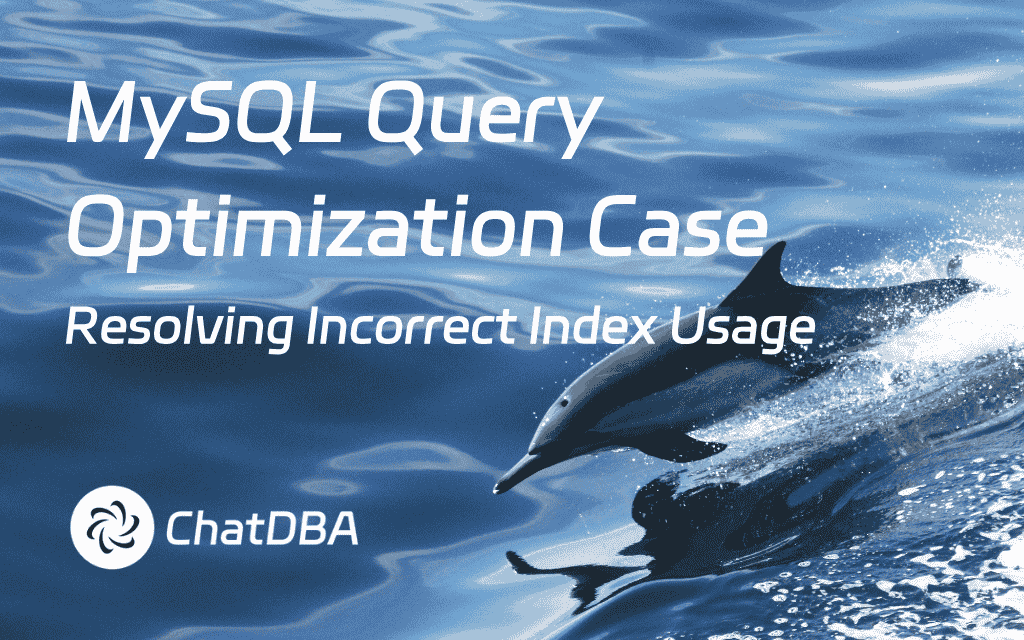Problem Phenomenon
A slow SQL query took 11 minutes to execute:
SELECT t1.HOSTID, t1.KEYATTR, t1.VALUE
FROM xxxxxxxxxxxxx t1, yyyyyyyy t2
WHERE t1.KEYNAME = 'cpuLoad5'
AND t1.CHECKTIME = '20240826'
AND t1.HOSTID = t2.HOSTID
AND t2.inspection_flag = 0;
Result: 631 rows.
Faster variants (executed in 0.17s) used adjacent dates:
-- For CHECKTIME='20240825' OR '20240827'
SELECT ... FROM ... WHERE CHECKTIME IN ('20240825', '20240827');
Analysis
- Execution Plan Comparison
- Slow Query:
- Full table scan on
yyyyyyyy(1,049 rows). - Nested loops with index
idx_xxxxxxxxxxxxx_hostidont1, leading to 92,400 rows scanned. - Cost: 72,929.
- Full table scan on
- Fast Query:
- Indexed scan on
i_xxxxxxxxxxxxx_checktime(70,288 rows). - Filter
KEYNAMEafter index lookup. - Cost: 48,701.
- Indexed scan on
- Slow Query:
- Key Issues
- Index Misuse: The optimizer preferred
idx_xxxxxxxxxxxxx_hostidoveri_xxxxxxxxxxxxx_checktime. - Join Order: Joined small table
t2first, causing excessive loops (105 iterations). - Statistics Mismatch: Optimizer underestimated rows for
CHECKTIME='20240826'(expected 131,052 vs. actual 71,018).
- Index Misuse: The optimizer preferred
Optimization Steps
1. Rebuild Table: Resolved fragmentation and improved index statistics.
ALTER TABLE xxxxxxxxxxxxx ENGINE=InnoDB;Reduced execution time to 0.19s.
2. Forced Index: Explicitly used i_xxxxxxxxxxxxx_checktime.
SELECT /*+ FORCE INDEX(i_xxxxxxxxxxxxx_checktime) */ ...
- Cost: 96,269, but forced correct index usage.
3. Join Order Hints: Prioritized filtering before joining.
SELECT /*+ JOIN_ORDER(t1, t2) */ ... - Cost: 92,764, optimized join sequence.
4. Partitioning: Proposed monthly partitioning for CHECKTIME to reduce scanned data.
Lessons Learned
- Index Design: Prioritize covering indexes for frequently filtered columns (
CHECKTIME,KEYNAME). - Statistics Maintenance: Regularly update histograms and analyze tables to ensure accurate cost estimation.
- Query Refactoring: Avoid nested loops with large datasets; filter early in the execution plariginal analysis

%20(2048%20x%201000%20%E5%83%8F%E7%B4%A0)%20(3).png)

%20(2048%20x%201000%20%E5%83%8F%E7%B4%A0)%20(2).png)
